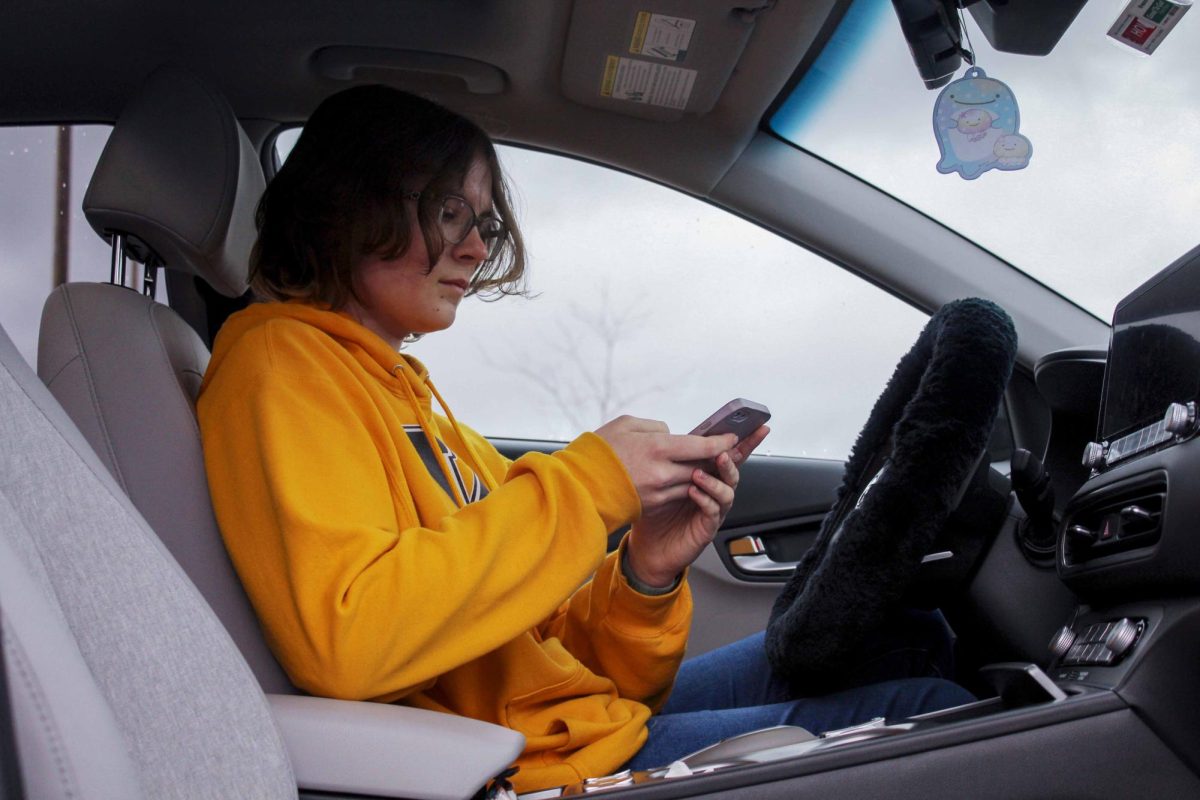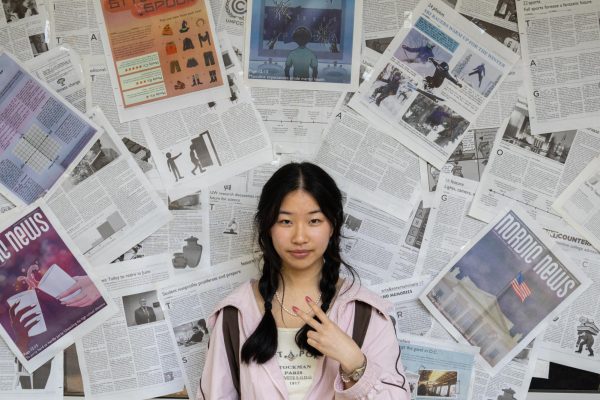Distracted teen driving is one of the leading causes of teen death. In 2022, 3,308 people died from distraction-related accidents in the U.S., according to the National Highway Traffic Safety Administration. In addition, the U.S. Department of Transportation states that drivers ages 15 to 20 make up 66% of car accident-related deaths.
Junior Niamh Macintosh (she/her), who has had her license for almost a year, said many people underestimate the potential consequences until they end up in an accident. One time, Macintosh got in a car accident on her way to school when the driver behind her was grabbing their water bottle and accidentally rear-ended her car. However, she said what impacted her view on the dangers of collisions most was when she saw a motorcycle and car crash into each other at high speeds in an intersection. Macintosh said she saw the motorcyclist fly in the air and that the front of the car was completely destroyed.
“It just kind of impacted my view on safety and the safety of people in my car because I know a lot of my friends have also gotten in car accidents — more serious ones,” Macintosh said. “I think it just impacted my understanding of how serious distracted driving is,” Macintosh said.
Junior Marina Martins (they/them) said that distracted driving does more than create the possibility of a collision.
“It also just endangers the people around you because of your carelessness,” Martins said. “It doesn’t matter if a person is near you, if they’re in a car or if they’re walking home from school, it’s still a physical danger. You sign up for that when you get a license or permit, or just when you’re driving in general, so you need to be aware and be careful.”
Research jointly conducted by Students Against Destructive Decisions and Liberty Mutual Insurance states that 68% of teens use their phones while driving. Macintosh said social media use leads to lower attention spans, which is another reason for distracted teen driving.
“I think it’s just our generation being very consumed by social media, the urge and easiness of getting distracted,” Macintosh said. “It’s like when you’re driving, you’ll get bored and you’ll want to whip out your phone and change the song or text someone.”
Sophomore Isaac Yu (he/him), who started driving this year, also said that distracted teen driving stems from screen addiction and the urge to check notifications. Most often, he said he sees teens use their phones to change their music while driving.
“I think most of the time distracted driving is like ‘Oh, I want to connect my phone to Spotify or something.’” Yu said. “So they would pull out their phone, and they’d be driving with Spotify, trying to scroll through and find the right music.”
However, Campus Supervisor Ric Calhoun (he/him) said that teen drivers are more prone to accidents due to inexperience. Combined with overconfidence, Calhoun said the lack of experience makes teen drivers especially vulnerable to accidents.
“The seniors sometimes are the worst drivers because they’ve been driving just long enough to get cocky,” Calhoun said. “The juniors or the sophomores that are just getting their license — usually they’re still following all the rules that they just learned during driving school.”
Calhoun said that drivers start getting overconfident when they believe they can multitask while driving.
“The reality is, the overconfidence of young people — that I had, and my mom had and everybody else that’s been driving has — you just feel that bad things can’t happen, or ‘I can handle this,’ but you’re doing something that you’ve just been doing for two, three years,” Calhoun said.
Junior Will Kinzer (he/him), who has been driving for a year and a half, said that he’d drive differently depending on the friends that were in his car. However, ever since he saw a rear-end collision at an intersection, he’s become more cautious whenever he sees brake lights on the car in front of him light up.
“Just be scared,” Kinzer said, “Be scared of the road, because it can be really dangerous, and my parents are always scared they’re going to find me in a ditch somewhere. Just be scared of the road because it is dangerous.”
Calhoun also said it’s important to be aware of how people can be affected by distracted teen driving.
“Do the research and kind of look at people whose lives have been affected by distracted driving,” Calhoun said. “When you’re a kid, sometimes you just really don’t think about how serious these things can be. Educating yourself on them and reminding yourself to drive responsibly I think makes the biggest difference because people are only listening to old folks so much.”












